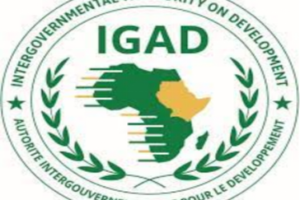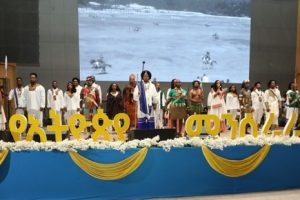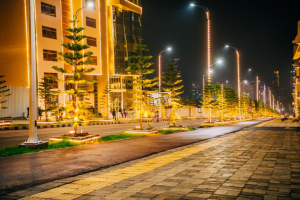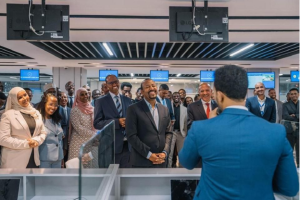
BY EYUEL KIFLU
The 36th Ordinary Session of the African Union (AU) Heads of State and Government and the 42nd Ordinary Session of the Executive Council, which took place from February 15 to 19, 2023, concluded peacefully.
The continent has been striving to overcome poverty, war, crime, violence, and other problems. The continental bloc discussed the pressing matters and set directions in its recent summit held in Addis Ababa which is headquarters of the African Union.
For the continental bloc to take its current stand, it passed through a lot of circumstances even to choose its headquarters since its inception.
To reach an agreement about the organization’s seat, many debates had been arising at different times. But, later Addis Ababa was chosen to be the host of the continental bloc. The reason the seat was decided to be in Ethiopia’s capital was that the country has been a vanguard nation in helping African nations to liberate themselves from the yoke of colonialism and in playing a central role in pan-Africanist agendas
Ethiopia is the only non-colonized nation in the continent. And, the victory of Adwa, where the country crushed invading Italian forces, became a preeminent symbol of pan-Africanism besides protecting Ethiopian sovereignty. In fact, the historic victory had further significance for being the first crushing defeat of European power by African forces during the colonial era.
The battle of Adwa was indeed a symbol of reference setting an example for other African countries that they could defeat the white armies. According to a website called History, which is known for Documenting international historical stories release. In the late 19th century, the European powers ran roughshod over Africa, brutally colonizing one country after another. Italy, for its part, targeted Ethiopia. But when its troops attacked on March 1, 1896, near the town of Adwa, the well-armed army was defeated by the gallant Ethiopian warriors.
In winning this pivotal triumph, Ethiopia not only defended its own independence but also inspired an anti-colonialist movement elsewhere. After the victory of Adwa, many African countries gained their sovereignty.
Ethiopia commemorates this Adwa festival, which is the pride of Africans, every year, and this year it will be celebrated for the 127th time with the theme of “Unity, Bravery and Perseverance”.
Ethiopians’ commitment to independence was fueled by the strong self-image of national pride, a love of freedom, and human dignity they nurtured through a long history of nationhood.
Adwa’s role in the foundation of the then Organization of African Unity (OAU) now the African Union was central. It is a symbol of African Perseverance and laid a great foundation for the formation of the union.
The country played a significant role in making OAU a reality when 32 heads of independent African states gathered in Addis Ababa, Ethiopia, in May 1963 to sign the charter establishing the organization.
In the establishment of the organization, the role of many African countries was vital. Indeed, respecting Ethiopian leaders who governed the country at different times shows commitment to African independence and liberation.
The South African freedom fighter and anti-apartheid activist Nelson Mandela was trained in Ethiopia by His Majesty Emperor Haile Selassie I. He received military and political training by joining the Ethiopian army. In 1994, Mandela was elected as the first black president of South Africa. In that year, South Africa joined the OAU under Mandela’s governor. In this regard, it seems that the role of Ethiopia in South African liberation was indispensable.
The OAU gains strength when many countries join after gaining their independence.
To strengthen this union, Emperor Haile Selassie’s desire was out loud during his speech to OAU members when he said, “We were lonely in the UN before, but now we are many, and no one knows more than us the badness of loneliness.” He conveyed the power of unity in his speech.
According to a new African magazine, the dispute between the Casablanca and Monrovian blocs was eventually resolved when Emperor Haile Selassie I invited the two groups to Addis Ababa and reached an agreement. However, the discussion was not simple for his Majesty since Casablanca Group members did not agree to it simply, and in fact, it was largely through discussions between Sékou Touré and Emperor Haile Selassie that the gap between the two main blocs was bridged and the creation of the OAU became possible where the OAU and its headquarters will be subsequently established.
Emperor Haile Selassie played a significant role in the formation of the OAU and black people’s liberation, along with his counterpart Ghana’s first president, Kwame Nkrumah, Julius Nyerere of Tanzania, and other pan-Africanist leaders.
The role of the Ethiopian governor was not stopped at this; on September 12, 1974, after Derg overthrew the government of the Ethiopian Empire and Emperor Haile Selassie, Ethiopia continued its participation in African liberation and unity. Military Derg also played a vital role in supporting Robert Mugabe to make Rhodesia the independent state of Zimbabwe under black majority rule in 1980. Then Zimbabwe joined the OAU after its liberation. This shows how Ethiopia has worked to promote African unity.
Similarly, the contribution of Ethiopia to African peace and development has been vital Also, on 7 December 2009, at the Copenhagen climate change talks; Ethiopia represented Africa on the global stage. The country argued strongly that African countries are the victim of climate change mainly induced by the carbon emission of the developed countries.
Ethiopia emphasized that the developed countries have to compensate Africa for the impact of global warming, and funding would help develop the continent’s agro-industries and environment conservation works.
Additionally, the county has been playing a lion’s share in UN peacekeeping missions at different times. In the UN and AU peacekeeping missions, the country is the top troop contributor, a UN report shows. Also, Ethiopia is one of the leading countries in deploying the highest number of women in peace operations. The country fulfilled its responsibility by participating in UN-led, blue-helmeted operation from July 1960 to June 1964 as part of the UN Operation in the Congo, in which Let. General Kebede Gebre served as Force Commander, the UN digital library website noted. Similarly, in the Rwanda peacekeeping mission, the Ethiopian peacekeeping troops were among the first to arrive after the genocide.
The country’s contributions were not only limited to this but also to Liberia, Sudan, Somalia, and others. Also, the country was participating in UN-authorized operations dating back to 1951 as part of the UN multinational force in the Korean War.
Ethiopia is not only home to the African Union Headquarters but also an important member of the Union. As such, Ethiopia plays a key role in promoting regional peace and security, as well as the continental agenda. Moussa Faki Mahamat, the Chairperson of the Commission of the AU, testified to the country’s significant role in Africa.
THE ETHIOPIAN HERALD THURSDAY 2 MARCH 2023





